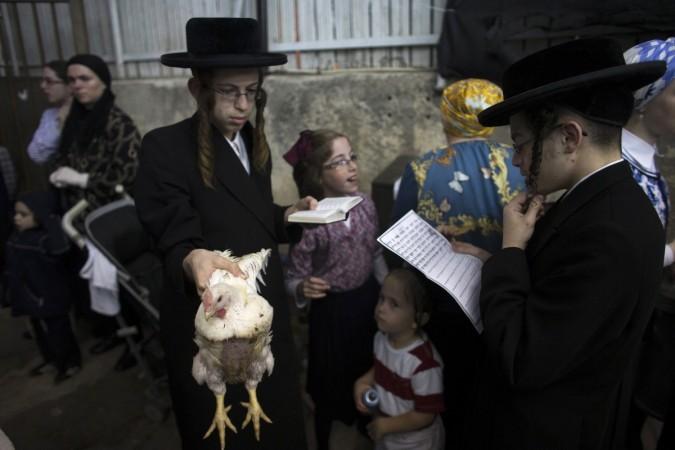
Jewish holiday of Yom Kippur is the holiest day of the year, the Day of Atonement, in which the Jews consider themselves as being closest to God and to the quintessence of their own souls.
During the Yom Kippur, Synagogue attendance peaks and devotees seek for forgiveness and promise to not repeat their sins. It can be called the "Sabbath of Sabbaths", as it is such an important holiday that it can even occur on the Jewish Sabbath, making it the only time that fasting is allowed on the Sabbath, explains Rabbi Jazon Miller on Skokie Patch.
They also refrain from washing or anointing their bodies or wearing leather footwear and engaging in marital relations during the Jewish holiday.
There are many interesting facts to be understood about the Jewish Day of Atonment:
What is Yom Kippur?
Yom Kippur literally means "Day of Atonement" and is devoted to "afflicting the soul", repentance and reflections on sins committed in the past year. It marks the culmination of the 10 Days of Awe, which begins with the Jewish New Year, or Rosh Hashanah, the "day of judgment for man", according to Chabbad.org.
Mythologically speaking, Yom Kippur commemorates the day God forgave the Jewish people for the sin of the Golden Calf.
Yom Kippur is outlined in Numbers 29: 7-11 and in Leviticus 16:30: "For on this day He will forgive you, to purify you, that you be cleansed from all your sins before God."
According to tradition, God decides each person's fate, encouraging those to repent.
When is Yom Kippur 2014?
Beginning at sundown on 3 October (9Tishrei, according to the Hebrew calendar) and lasting until nightfall on 4 October (10 Tishrei), Yom Kippur lasts for 26 hours, during which the followers abstain from any kind of food and drinks.
It coincides with the Muslim "festival of the sacrifice" or the Eid al-Adha, which honours the willingness of Abraham (Ibrahim) to sacrifice his promised son, as an act of submission to God's command.
The end of Yom Kippur is marked with he euphoric singing of "Napoleon's March" at the late afternoon prayer, at which point, the Jews are ecstatically confident that God has sealed them all for a wonderful year of happiness, prosperity and health; the year, which will finally give them the long-awaited redemption.

How is Yom Kippur observed?
It is characterised by fasting, continuous prayers and repentance and therefore, on the day before Yom Kippur, the primary mitzvah is to eat and drink in abundance. Before sunset, women and girls light holiday candles, and everyone makes their way to the synagogue for the Kol Nidrei services.
Five main prayer services are held in honour of Yom Kippur: Maariv, with its solemn Kol Nidrei service, on the eve of Yom Kippur; Shachari, the Morning Prayer; Musaf, which includes a detailed account of the Yom Kippur Temple service; Minchah, which includes the reading of the Book of Jonah and finally Neilah prayer, which seals the gates of heaven, with the observers of Yom Kippur inside.
After the long day of fasting, a festive after-fast meal follows, making the evening after Yom Kippur a yom tov (festival) in its own right. Charity is another important part of the holiday. In the days preceding Yom Kippur, Jews make donations or volunteer to atone for their sins.
Why fast during Yom Kippur?
Fasting is an essential component of Yom Kippur and is done in accordance with the verse from Leviticus 23:27: "On exactly the tenth day of this seventh month is the day of atonement; it shall be a holy convocation for you, and you shall humble your souls and present an offering by fire to the LORD."
This has been interpreted as abstaining from the body's main needs, including food and drink. It is seen as an "an expression of pure faith in God" and a way to cleanse the body and spirit. Although food and drink are prohibited, children under 13 and people who are ill or pregnant do not have to fast.
How do you greet someone on Yom Kippur?
A customary greeting on Yom Kippur includes wishing individuals an "easy fast" or "have a meaningful fast". Commonly used Hebrew greeting include Gmar Chatimah Tovah (may you be sealed in the Book of Life for a good year) and L'Shanah Tovah (for a good year).
For those who are not well-acquainted with Yom Kippur and not been to a synagogue that often, but would like to take part in the services, Chabad is offering a step-by-step guide on how to prepare for Yom Kippur services, with the assurance that "natives are friendly and will be more than happy to help you out."









